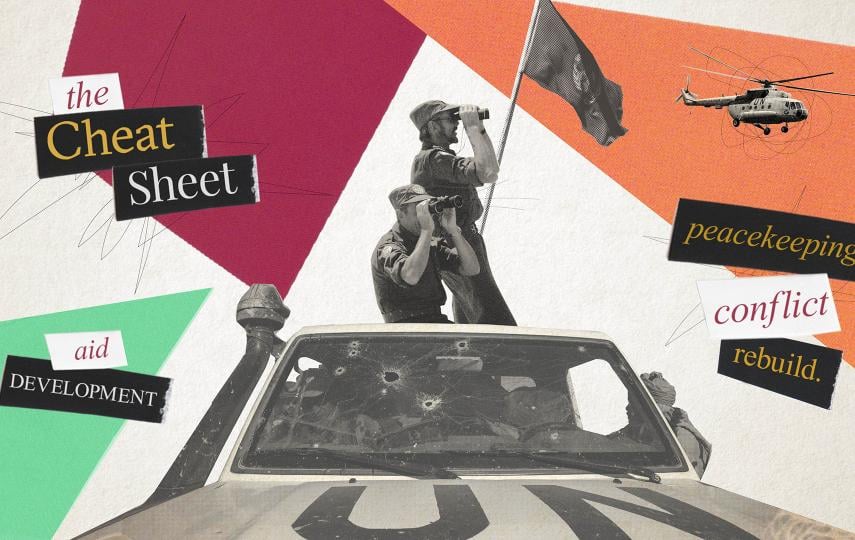Eighteen years after fleeing the horrors of war in Somalia, the Ahmed family have still not found peace in Kharaz refugee camp in southern Yemen, about 150km west of Aden.
“We have no respect here because we are the only ones from our tribe,” said Muna. “We cannot quarrel or defend ourselves if someone cheats us. If we do, everybody gangs up against us.”
The Ahmeds are the only people among the 16,800 camp residents who are from the Baraawe tribe, which originates from a small town by the same name on the coast of southeastern Somalia, about 100km southwest of the capital, Mogadishu. The problems they faced there have stalked them to Yemen.
After three of her brothers were also killed and her sister raped in front of her, Muna and her husband decided to flee Somalia with their children.
However, even in the refuge of Kharaz camp in Yemen, tribal problems are an issue among the mainly Somali residents. In an attempt to resolve this, the UN Refugee Agency (UNHCR) has been involved in promoting free and democratic elections to determine community leaders.
Camp management
“UNHCR responded to calls by the refugees to be genuinely represented by leaders chosen by their community in a transparent manner,” Abdulrahman Fadaaq, senior community service clerk for UNHCR in Yemen, told IRIN.
In November 2008, UNHCR and its partner NGOs, in cooperation with camp residents, started working on democratising the camp leadership. “We started reducing our dealings with tribal leaders,” said Fadaaq. “There were several complaints that the tribal leaders were not representative.”
The camp consists of 59 blocks of concrete shelters and 20 blocks of tent shelters, with each block comprising 25 shelters. Every block elects a male and female leader. Of those elected, 10 block leaders (five women and five men) are nominated to the Grand Council, which represents camp residents before humanitarian agencies and the government.
Block leaders also elect five subcommittees: an education subcommittee working in coordination with international NGO Save the Children; a health subcommittee working in coordination with local NGO Charitable Society for Social Welfare (CSSW); a water and sanitation subcommittee working in coordination with local NGO Society for Humanitarian Solidarity (SHS); a social welfare subcommittee working in coordination with international NGO Adventist Development and Relief Agency (ADRA); and a food subcommittee working in coordination with WFP and SHS.
|
Photo: Annasofie Flamand/IRIN  |
|
"We have no respect here because we are the only ones from our tribe.” |
|
Muna Osman Ahmed |
Issues are put forward by block leaders to the Grand Council or to the subcommittees as well as through monthly coordination meetings with all partner agencies working in the camp. In the case of stalemates, UNHCR gets involved.
Reducing tribal influence
Osman Haji Abdullah, Chairman of the Grand Council, pondered over the queue forming outside his concrete shelter: “I used to be a free man, now I constantly meet people that have problems with their ration cards or they are sick and complain of the treatment they receive from the hospital. It’s hard work – I don’t get much sleep.”
Yet Abdullah was keen to point out the improvements that had been made under the new system of governance.
“Patients used to have to start queuing from 3am. We changed that so they register for an appointment at seven and return when the doctor is free,” he said, adding that WFP’s food distribution was now done block by block to avoid queues in the heat.
“Many people are here due to tribal problems and discrimination back home,” said Abdullah. “Now, we live in a democracy like brothers – there are hardly ever any problems.”
Fadaaq said the election of the Grand Council had improved refugees’ representation and reduced the power of self-appointed leaders, who were often reported to UNHCR for corruption. He conceded that “tribal interferences continue to be a hazard for all ongoing activities in the camp”, but was hopeful that the November 2010 elections would produce a representational structure “with reduced competition for power between the refugee block leaders and the tribes’ leaders”.
However, not everyone was as optimistic as the UNHCR official.
“I don’t think the block leaders listen to us,” Muna said. “The problem is we are a minority and no one respects us. Now we stay away from other people.”
asf/ed
This article was produced by IRIN News while it was part of the United Nations Office for the Coordination of Humanitarian Affairs. Please send queries on copyright or liability to the UN. For more information: https://shop.un.org/rights-permissions




